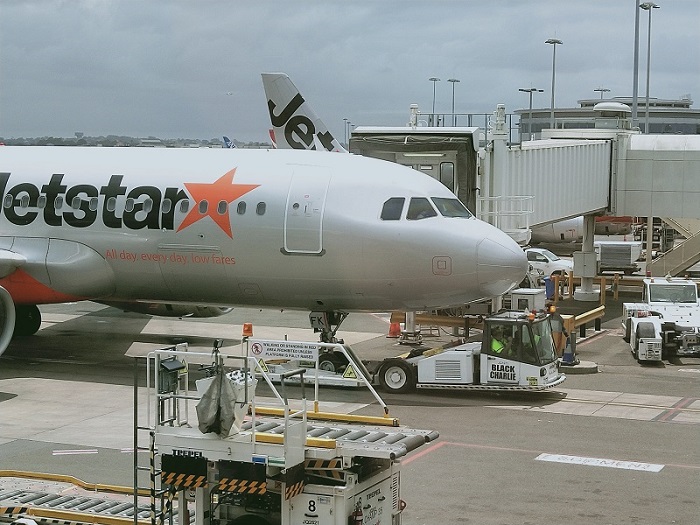Jetstar victory as ground workers accept pay increase
29 February, 2020
4 min read


A strategy to sidestep unions and take pay proposals directly to workers has scored a narrow victory with Jetstar ground workers.
Jetstar management decided to put a 3 percent pay proposal directly to the ground workers after stalled negotiations with the Transport Workers' Union resulted in work stoppages and flight cancellations.
The results came in on Saturday with the company claiming a victory, revealing the majority of workers voted up the proposal.
It did not give figures but the TWU said it was just 51 percent of about 350 workers.
The ballot declaration showed the vote was 179-172.
READ: S&P downgrades Virgin Oz as Rex reports profit fall.
Jetstar is not the only member of the Qantas Group to adopt the strategy: Qantas International is threatening a similar move with its pilots if it cannot get their union to ratify a long-haul enterprise agreement.
A spokesman said the deal gave ground crew a pay increase of 12 percent over four years as well as improvements to rostering and allowances.
"This agreement rewards our people with a wage deal that is almost double the inflation rate but still lets us deliver the low fares our customers expect," he said.
Jetstar chief executive Gareth Evans later described the vote as an important win in a "campaign of misinformation and inaccuracies by the TWU".
"The TWU tried to dictate how we run our business by pushing us to guarantee some part-time workers more hours regardless of what work the airline actually needs,'' he said.
"We’ve been very clear that no part of Jetstar or the Qantas Group will do a wage deal of more than three percent, and the TWU knew this because they’d already agreed to three percent deals in other parts of the business.
"It makes you question what their strategy and intention actually was".
The TWU said the narrow result highlighted that the problem of underemployment had not gone away for the Jetstar workers.
It accused the company of resorting to blackmail and intimidation by threatening not to pay rate increases owed from March 2019, if workers did not vote for its proposal.
TWU national secretary Michael Kaine said many Jetstar workers would be forced on to contracts guaranteeing them no more than 20 hours a week.
Kaine said the work was there and Jetstar knew this because it continued to outsource work to "underpaid workers" at contractors such as Swissport.
"It is not easy to stand up at your workplace along with your mates and say no to your manager,'' he said.
"Jetstar workers did this for as long as they could but for low-paid workers, the prospect of being denied money from a rate increase that was due a year ago was too much.
"The lack of hours these workers struggle with means many live pay-check to pay-check. Jetstar knows this and therefore chose to force this deal on workers using disgraceful blackmail tactics."
The TWU also criticized the Federal Government for failing to hold airports and airlines to account over underemployment and poverty wages in aviation.
The union says a survey of Jetstar workers showed almost 80 percent struggled to pay household bills because of a lack of guaranteed hours.
The union now has airports in its sights and has threatened widespread industrial action this year as 200 enterprise agreements covering 38,000 transport workers expire.
“Thousands of workers across the airports are underemployed, some on as few as 60 hours a month,'' he said. "They are left scrambling for extra hours to feed their families and pay their bills."
Get the latest news and updates straight to your inbox
No spam, no hassle, no fuss, just airline news direct to you.
By joining our newsletter, you agree to our Privacy Policy
Find us on social media
Comments
No comments yet, be the first to write one.

